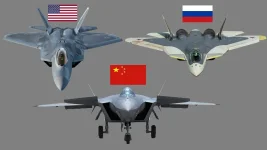- Views: 563
- Replies: 2

In a significant breakthrough for India's indigenous defence technology, the Solid State Physics Laboratory (SSPL) and the Research Centre Imarat (RCI), in partnership with Techno Craft Industries India Ltd, have successfully demonstrated a high-performance miniature Joule-Thomson (JT) cooler.
This achievement, realized under the Technology Development Fund (TDF) program, holds immense potential for advancing India's capabilities in precision-guided munitions.
The miniature JT cooler is a critical component in infrared (IR) seeker systems, which are essential for guiding missiles and other advanced weaponry with pinpoint accuracy. By rapidly cooling IR sensors to extremely low temperatures, the cooler enhances their sensitivity and operational efficiency. Its compact size, high performance, and reliability make it indispensable for modern missile systems.
This project exemplifies the growing synergy between DRDO laboratories and Indian industry, highlighting the increasing maturity of India's defence research and development ecosystem. Techno Craft Industries India Ltd played a pivotal role in manufacturing and refining the cooler, meeting the stringent performance and quality standards set by SSPL and RCI.
The successful demonstration of this miniature JT cooler has not only fulfilled domestic requirements but has also generated interest from international buyers. This highlights the global competitiveness of the technology and opens avenues for India to become a key supplier of critical missile components in the international market.
This breakthrough has several implications for India's defence capabilities:
- Enhanced precision strike capabilities: The miniature JT cooler enables the development of more sophisticated and accurate IR seeker systems, leading to enhanced precision strike capabilities for India's armed forces.
- Reduced reliance on imports: By developing this critical technology indigenously, India reduces its dependence on foreign suppliers for advanced missile components.
- Boost to domestic defence industry: This successful collaboration between DRDO labs and private industry strengthens India's domestic defence industry and promotes self-reliance in defence technology.
- Potential for exports: The global interest in this technology opens up opportunities for India to export high-value defence components, contributing to its economic growth and strategic influence.



